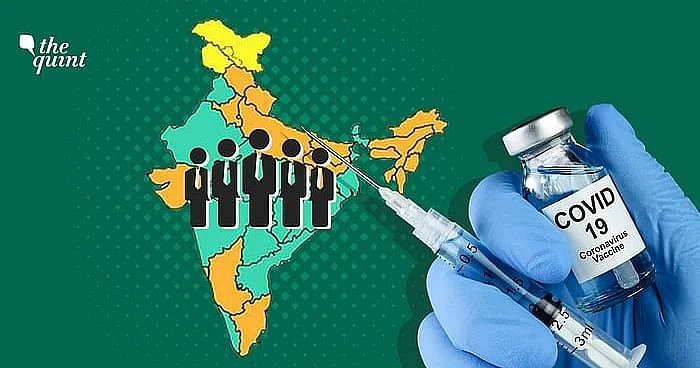Even as COVID-19 cases continue to spiral, hospitals still report a shortage of beds and crematoriums of firewood, and while crores of Indians, at least those with access to the virtual portals, scrounge for vaccine slots – often in vain – the Centre, on Sunday, 9 May, asked the Supreme Court to not interfere with its vaccine policy.
As per media reports, the Centre, in its affidavit, told the Supreme Court that its vaccination policy had been designed to ensure equitable distribution, with limited availability of vaccines, vulnerability, and the fact that vaccinating the entire country was not possible in one go due to the suddenness of the pandemic, “as the prime consideration”.
The Supreme Court, on Monday, adjourned the hearing in the case, for Thursday, 13 May.
Meanwhile, Justice DY Chandrachud, as per ANI, informed the Centre that they have received the affidavit and will go through it, following which the lawyers connected to the case have asked the top court to adjourn the matter for 13 May so they would have enough time to read the affidavit.
Claiming that it’s policy requires “no interference” by the top court and that “the Executive does have a room for free play in the joints, in larger public interest”, the Centre, according to Bar and Bench, said:
“In the context of a global pandemic, where the response and strategy of the nation is completely driven by expert medical and scientific opinion, there is even little room for judicial interference. Any overzealous, though well-meaning judicial intervention may lead to unforeseen and unintended consequences, in absence of any expert advice or administrative experience, leaving the doctors, scientists, experts and executive very little room to find innovative solutions on the go.”
Centre’s Justification on Differential Pricing
In a bid to justify the price of the vaccines and the difference in the rates between that for the Centre and the States, the Centre’s affidavit claimed:
- Even though it is the states that procure the jabs, the Centre has, by informal consultations with vaccine manufacturers, ensured uniform pricing for all states.
- Distribution of jabs among states is based on equitable and rational criteria, as well, so as to eliminate the chances of differences in the bargaining power of states.
- The central government places large purchase orders for vaccines, unlike state governments and private hospitals. Hence, it impacts the negotiated prices.
- The price factor will not have any consequence on the person’s eligibility for the jab, as all state governments have already declared their decision of administering the vaccine free of cost.
- The vaccine manufacturers have taken a financial risk in developing and manufacturing the jabs. Hence, it is “prudent” to take pricing calls through negotiations in “a transparent consultative process, keeping statutory provisions as a last resort under the present circumstances”.
- There maybe a “possibility of vaccine pricing decision in India having an inevitable impact on the country’s efforts bringing in more global vaccine manufacturers in to the country”.
Further, the Centre, was quoted by The Indian Express, as saying:
“This policy and process is dynamic to factor in some changes in public interest in future, either in the event of more doses being available from within India or from outside or for any other reason, if such change is required.”
What Critics Have Said
Meanwhile, critics of differential pricing have sought a different strategy from the Centre, with Praveen Chakravarty, chairperson of Congress' data analytics, pointing out to The Quint’s Sanjay Pugali that the “COVID vaccine is not like a flight ticket where every passenger pays a different fare".
Chakravarty’s suggestions include:
The Centre should ask state governments to directly place orders with the vaccine manufacturer, depending on the size of the population of each state.
The Centre should pay the manufacturer directly and make the vaccine free for all state governments.
Further, Prashant Reddy T, in his opinion piece for The Quint, wrote: “Instead of dwelling on legal options to control prices, the government could’ve handled negotiations on behalf of states.”
Background
On 2 May, the Supreme Court, in its 64-page order and a suo-motu writ petition, had asked the Centre to revisit its vaccine procurement policy, pointing out that the present police would “prima facie result in a detriment to the right to public health which is an integral element of Article 21 of the Constitution”.
On Sunday, 9 May, India reported 4,03,738 new coronavirus cases, taking the tally in the country to 2,22,96,414. The death toll increased by 4,092 to 2,42,362.
(With inputs from The Indian Express and Bar and Bench)
